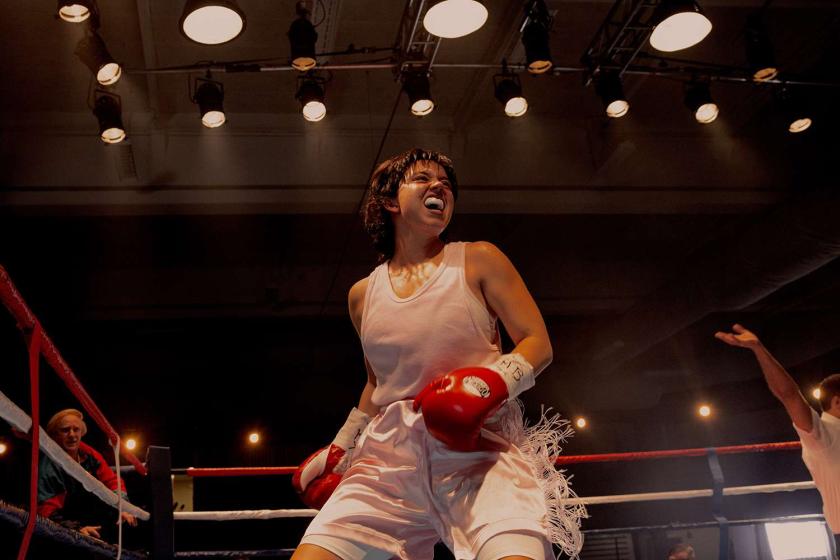Before Million Dollar Baby and Fight Girl, before women could compete in boxing at the Olympic Games, there was Christy Salters Martin. The hard-punching West Virginian known in the ring as the Coal Miner's Daughter and to U.S. television audiences as a sassy sports phenomenon was a housewife who just happened to knock people out.
Dressed in baby pink for the ring and floral, puffy-sleeved dresses for her many TV chat show appearances, Martin embodied all the contradictions of the ‘90s and early 2000s’ view of female athletes. "I’m not trying to make a statement about women in boxing, or even women in sports," Martin told Sports Illustrated in 1996. "I’m not trying to put women in the forefront. This is about Christy Martin."
Though there's always a certain amount of trash talking in combat sports, Martin's pre-bout banter ran to homophobic taunts aimed at her less media-friendly opponents. No matter how you felt about her, her fighting skills were undeniable – 32 knockouts in 59 fights. For her trainer and husband, Jim Martin, Christy was a ticket to the big time.
But there was always more to Christy's story, as this staid but ultimately powerful biopic reveals. Directed and co-written by David Michôd (Animal Kingdom), the fighter's journey takes an unexpected turn from sporting self-discovery to survival horror.
The film's first surprise is the knockout performance by star Sydney Sweeney, who transforms herself into the muscular, pugnacious Martin. Sometimes better known for her questionable marketing moves, Sweeney always had the makings of a versatile character actress: witness her performance as a U.S. Air Force intelligence analyst turned public informant in the HBO drama Reality.
Sweeney’s Christy is first seen as a college basketball player whose none-too-secret romance with a teammate marks her as a pariah in the conservative South; her singularly un-supportive mother (Merritt Weaver) consistently undermines her.
When Christy discovers boxing and moves away to the training camp run by Jim Martin (Ben Foster, unrecognizable beneath a horrible combover), her family seems all too happy to see her gone – until she marries the much-older trainer. Under his tutelage, she wins pro bouts and sheds her tomboy ways, growing her hair long and masquerading as a (straight) girl next door. As boxing impresario Don King notes, nobody wants to see a butch girl in the ring.
As Christy's career peaks, her personal life falls apart. Her trainer husband becomes controlling and violent, and Christy, still eager to compete, wrecks her health and nearly her mind with rampant cocaine use.
Michôd stages most of Martin's bouts against a black background, as though she's fighting in a void. The moviemaking is disappointingly straightforward; Christy is no Raging Bull. Only in Martin's uneven matchup with Laila Ali (Naomi Graham) does the film suggest the massive audience for the sport. In that ill-advised contest, though, Martin's bravado is all she has left. Ali – younger, taller, stronger – pretty much ends Martin's career.
Away from the spotlight, Christy reconnects with a high school girlfriend, but her husband retaliates with horrific violence, nearly killing her. As she recovers with the help of a former rival (Katy O'Brian), Sweeney excels. In one quietly moving scene, Christy recalls how peaceful she felt in the ring. "All the chaos went away," she says. "Everything made sense."
Finally, the woman and the film begin to contemplate the brutal allure of combat sports, and the kinship between those who fight. Let's hope that the gifted Sweeney, like the real Christy Salters Martin, proves to be a true survivor.
- More films on theartsdesk














Add comment